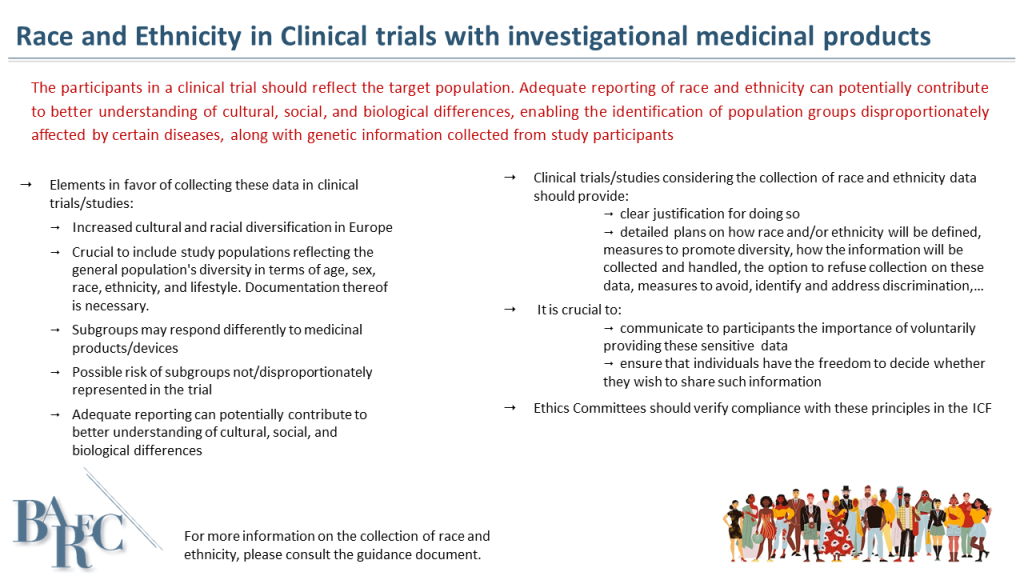This website uses cookies so that we can provide you with the best user experience possible. Cookie information is stored in your browser and performs functions such as recognising you when you return to our website and helping our team to understand which sections of the website you find most interesting and useful.
BAREC statement race and ethnicity
The participants in a clinical trial should reflect the target population. Adequate reporting of race and ethnicity can potentially contribute to better understanding of cultural, social, and biological differences, enabling the identification of population groups disproportionately affected by certain diseases, along with genetic information collected from study participants.
- Elements in favor of collecting these data in clinical trials/studies:
- Increased cultural and racial diversification in Europe
- Crucial to include study populations reflecting the general population’s diversity in terms of age, sex, race, ethnicity, and lifestyle. Documentation thereof is necessary.
- Subgroups may respond differently to medicinal products/devices
- Possible risk of subgroups not/disproportionately represented in the trial
- Adequate reporting can potentially contribute to better understanding of cultural, social, and biological differences
- Clinical trials/studies considering the collection of race and ethnicity data should provide:
- clear justification for doing so
- detailed plans on how race and/or ethnicity will be defined, measures to promote diversity, how the information will be collected and handled, the option to refuse collection on these data, measures to avoid, identify and address discrimination,…
- It is crucial to:
- communicate to participants the importance of voluntarily providing these sensitive data
- ensure that individuals have the freedom to decide whether they wish to share such information
- Ethics Committees should verify compliance with these principles in the ICF
We would also like to refer to the advice nr. 17 of the Belgium’s Advisory Committee on Bioethics: https://www.health.belgium.be/en/node/46162

